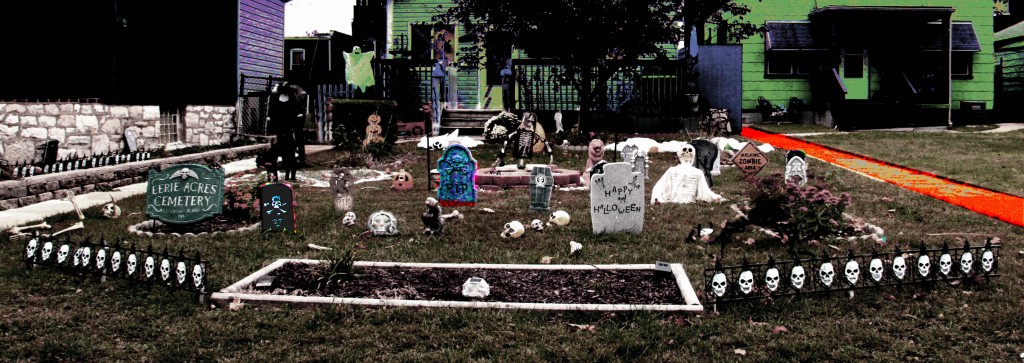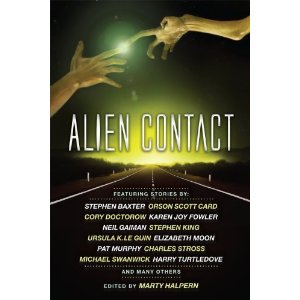Herman Cain is having a problem, and it won’t get any better by telling reporters that he won’t discuss it.
I don’t want to get into a big analytical thing about sexual politics here, but from the descriptions so far of what Cain did, he made an assumption that I think is all too common among men of a certain mindset. Cain apparently made inappropriate comments to women in the context of a working situation. I have no doubt he shrugged it off and forgot about it until it came back to bite him and probably wondered what the big deal was all through the negotiations of settlements. “I mean,” he likely thought, “I was just talking.”
Whatever the actual events, this is something that is not hard to understand and is no doubt misunderstood. I worked with a man who indulged this kind of behavior constantly and couldn’t understand why the women were getting all upset. In that instance, they were customers and he was the retailer. He would flirt, make suggestions, even proposition women, and could not fathom why many did not come back or why they would be upset in the least. After all, he was joking. He didn’t mean it. And lastly, well, they didn’t say anything—in fact, some of them laughed.
Partly this is a cluelessness that infects many people. But this was a dynamic I was able to explain to him in fairly straightforward terms.
If you’re at a party and you proposition someone or make an off-color remark or whatever, everyone is completely free to just walk away. The behavior may be offensive, but there is no coercion, no one is put into a lousy situation against their will, no one has to listen to you if they don’t want to. (I’m assuming a party for a party’s sake here, not a party where people from the office are getting to know each other—that’s different because there is less freedom to walk away.) In this context if you offend someone she can either throw her drink in your face and leave, tell you what a shit-heel you’re being, embarrass you some other way, join in the tastelessness, or whatever.
But in any kind of business context, that freedom does not exist. Even as a customer. And this is hard for some people to understand because we’re very informal in many business dealings. Why isn’t the customer free to behave as she would at a party? Because as a customer she wants something and she has to deal with you to get it. It may be a loose constraint, but it is a constraint nevertheless. So if you come on all boorish and macho, she has an uncomfortable set of compromises she is forced to make. Either put up with you until she gets what she came for, give up on what she came for and hope she can find it somewhere else, or be offensive right back, souring the cordiality of the interaction. For the duration of the transaction, server and customer are bound together in an unspoken contractual arrangement that limits the range of response.
Any questions?
Yes, it’s a power situation. Waitresses understand this very well. They put up with all kinds of nonsense because they could lose their jobs if they respond as they would on the street with a stranger. Situations in which people must work together also limit the possible range of reactions.
For the ass hat acting like the reincarnation of Maurice Chevalier, it may not be a big deal—verbal games, fishing for possibilities—or it may be a more insidious game of power plays and sexual predation, but in either event there may well be an obliviousness that leaves the impression that since she didn’t dump a pot of coffee in his lap she must be enjoying the interaction. Or they may very well know that the woman having to put up with him is in a constrained situation.
Either way, it is not a simple matter of “just funning.”
Guys often just don’t get this. Guys who have been sexually harassed often do. They realize that it’s a power situation. It’s not fun and games, it’s not “innocent”, it is not voluntary on all parts.
The term Privilege applies.
So Herman probably stuck his mouth out there and made inappropriate remarks to women who did not have the freedom to tell him to go fuck himself and probably wondered what the fuss was about when they threatened action. He had probably behaved that way countless times with no blowback and told himself that these women were aberrations.
On the other hand, he may very well understand that this is a power game, but still not see what real harm there is in it. He sees the world from a perspective of privilege—the privilege of being in a position from which he need never tolerate unwanted intrusions of this kind, the privilege of being able to respond with a “fuck off” and not worry about the consequences—like losing a job or having a business deal fall through.
It’s a lack of empathy.
Now, after having made it a policy to reject race card politics, he’s claiming these attacks are racially motivated. No no. This kind of behavior is colorless.
I’m giving him the benefit of the doubt that what has been reported is all that happened. If it turns out there’s more, well. ..
But I wanted to explain at least this small aspect of sexual harassment that seems so byzantine to people. It’s really not. We’ve all seen the “boss” who abuses his employees. If it were elsewhere, among strangers, and he acted like that, someone might punch his lights out, but his employees are constrained by fear. We recognize this kind of boss as a bully.
It’s the same thing.






